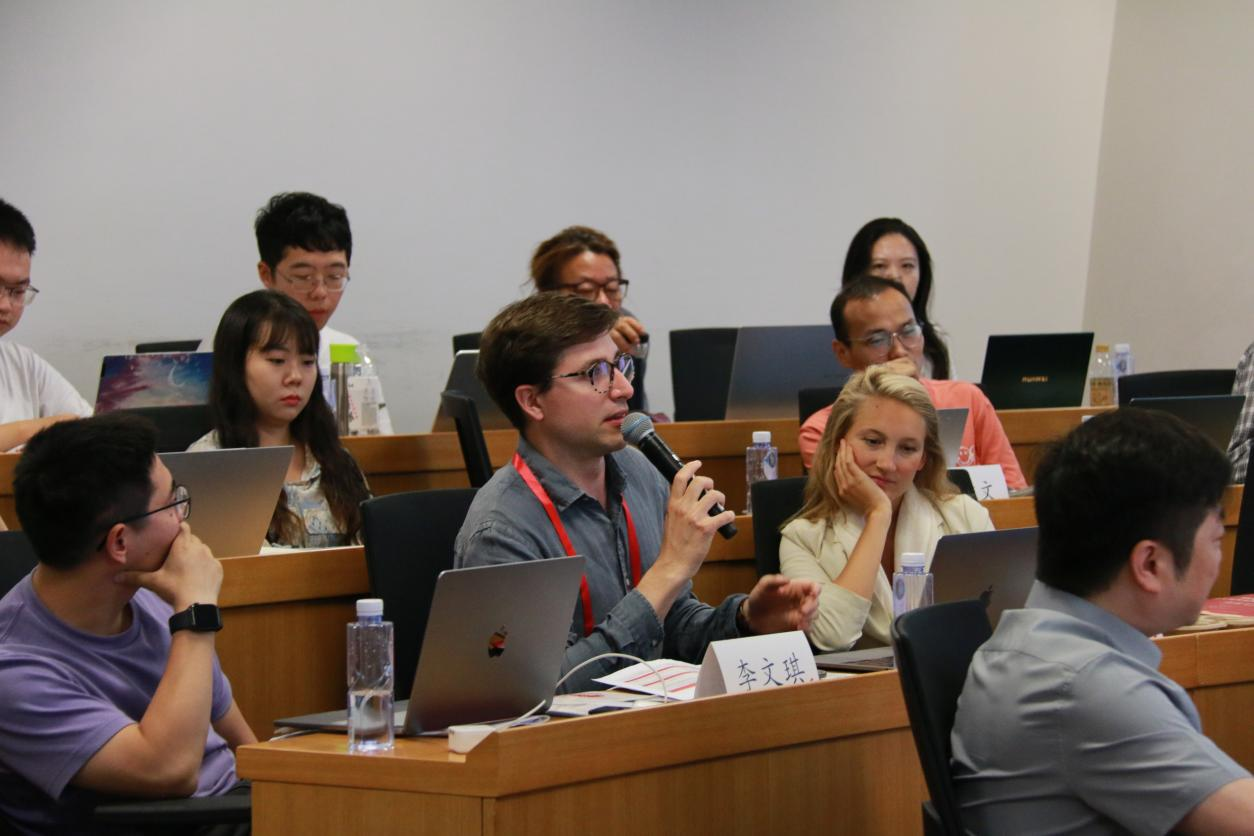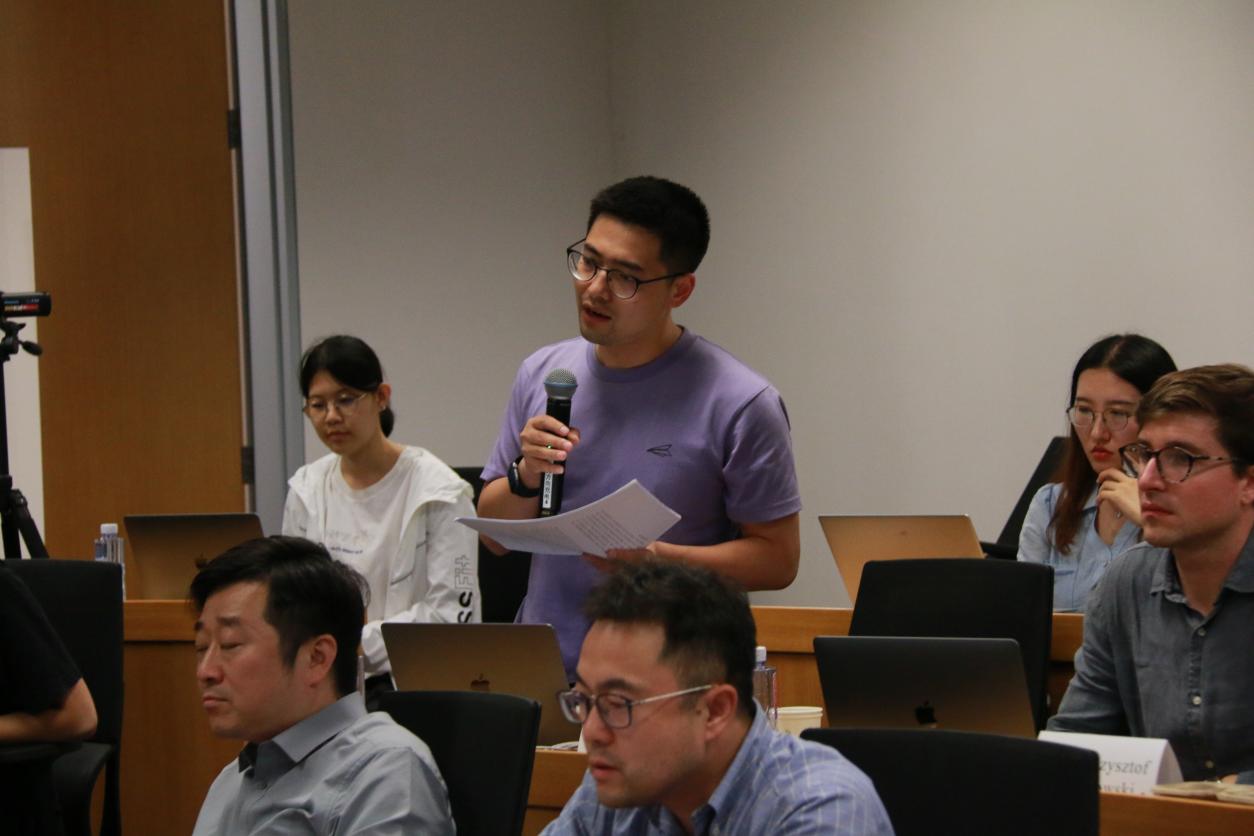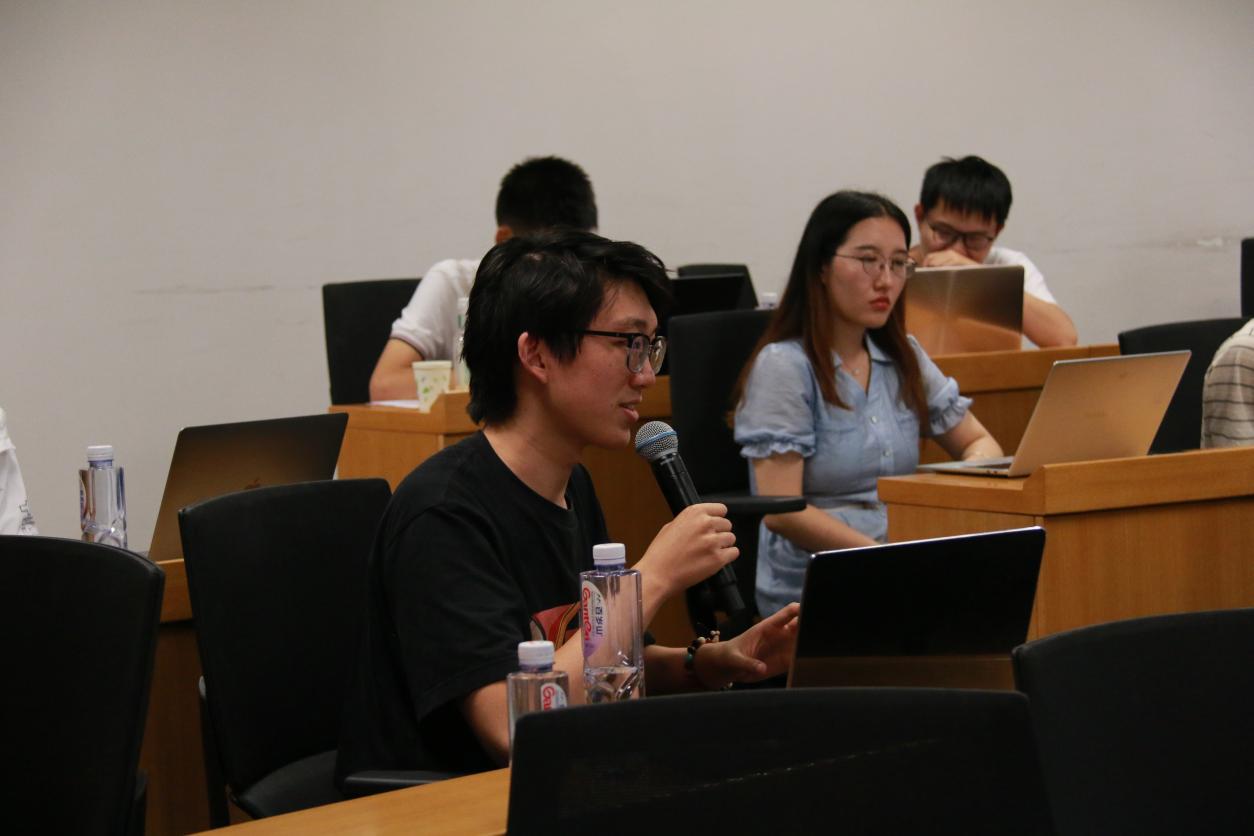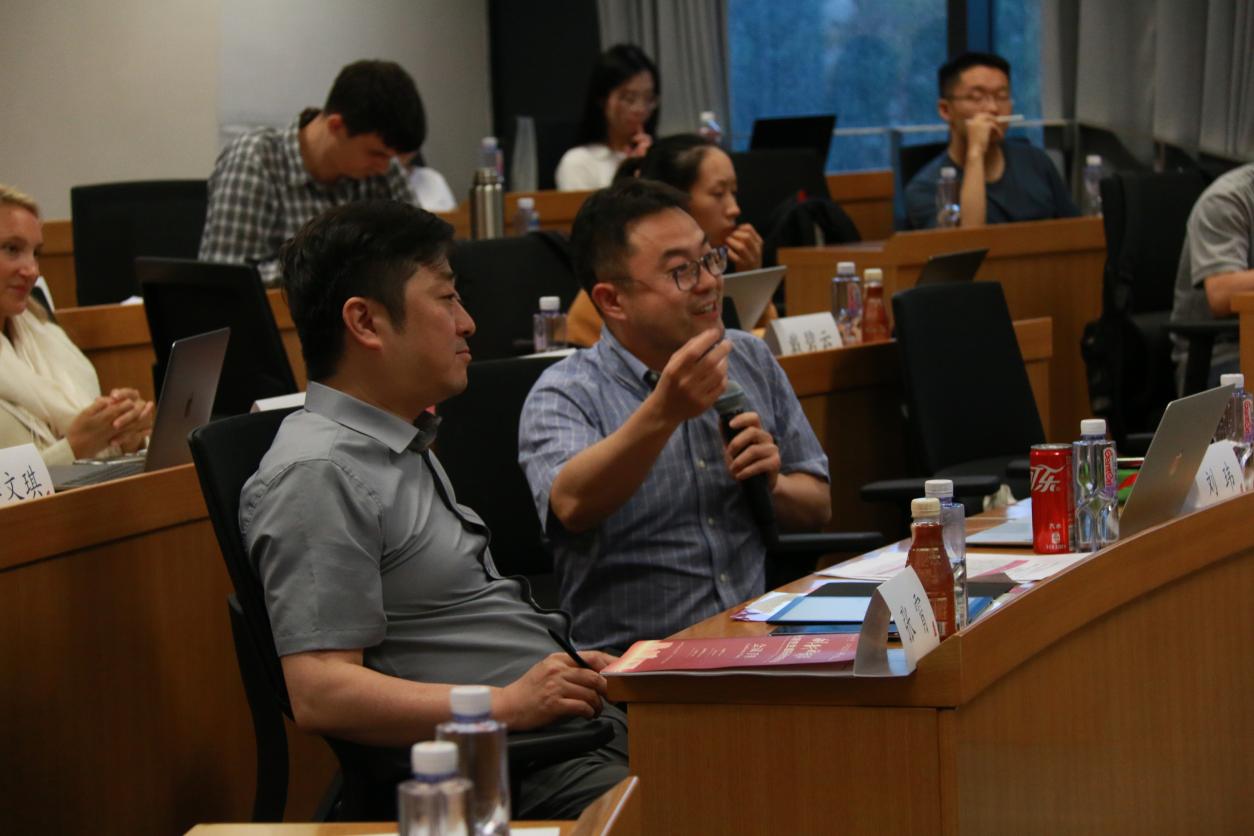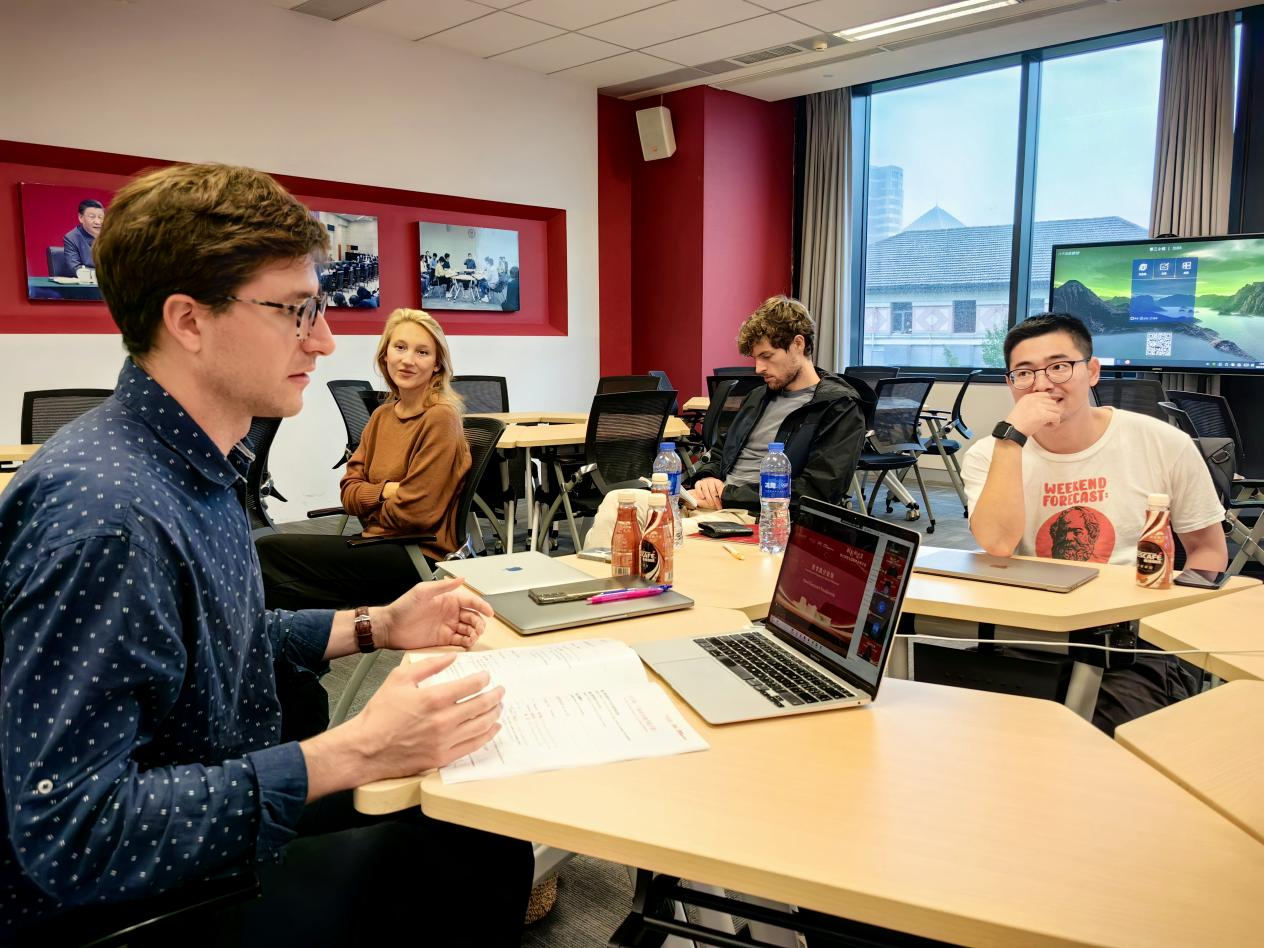The Philosophy Sub-forum of "Frontiers of Innovation: The First International Academic Symposium for Doctoral Candidates" at Renmin University of China, themed "Ancient Philosophy and the Mutual Recognition of Civilizations", was convened
Aug 01 , 2023Exploring Ancient Thought and Integrating Chinese and Foreign Cultures, the Philosophy Sub-forum of “Frontiers of Innovation: International Academic Symposium for Doctoral Students” themed “Ancient Philosophy and the Mutual Recognition of Civilizations” was held in Room 502, Lide Building, Renmin University of China (RUC). This philosophy sub-forum featured five sessions, during which 10 outstanding doctoral students from Renmin University of China, Peking University, Tsinghua University, Oxford University, Princeton University, University of Munich, and Columbia University shared their latest research results in the field of Ancient Philosophy and Intercultural Exchanges.
The opening ceremony was hosted by Professor Zhang Xiao, Vice Dean of the School of Philosophy, Renmin University of China, and Professor Zang Fengyu, Dean of the School of Philosophy, delivered a speech. Dean Zang Fengyu firstly expressed his warm welcome to the guests and his expectation of embarking together on this journey of thought through time and space to explore the profound wisdom of the roots of human civilization shaped in ancient thought. He pointed out that the pursuit of knowledge and truth by ancient sages is a strong proof of the timelessness of philosophical exploration. From the ancient civilizations of the East and West to the diverse cultures around the world, the philosophical explorations of our ancestors still resonate with us today. Whether it is Socrates, Plato, Aristotle, or Confucius, Mencius, or Lao Tzu, the study of ancient wisdom reveals an incredible diversity of thought, each of which offers unique insights into the nature of existence, ethics, politics, and the human condition.
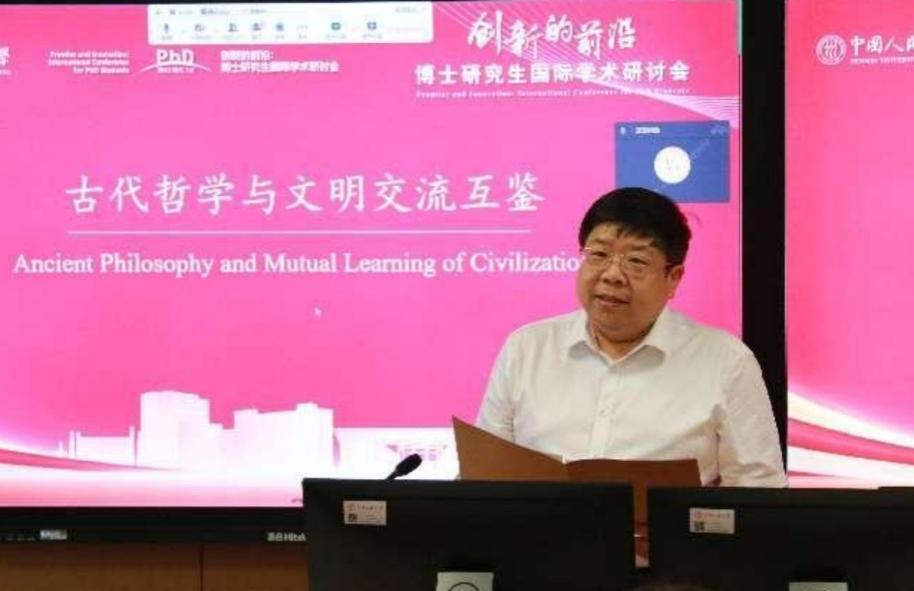
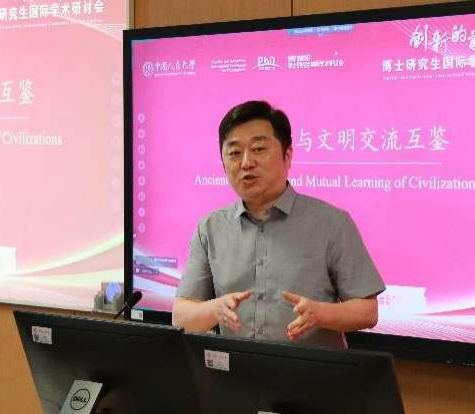
Professor Zang Fengyu emphasized that the study of ancient philosophies and civilizations remains important in our time. As we face the complexity of an interconnected global world, ancient philosophy reminds us of the commonality of human nature and the universality of philosophical inquiry. By studying different philosophical traditions from different cultures, we can cultivate a broader perspective and promote understanding, empathy and mutual respect. He pointed out that the International Academic Symposium for Doctoral Students not only enables us to learn about the most cutting-edge ideas and come into contact with different perspectives, but more importantly, it creates intellectual bonds and establishes an academic community. Finally, Dean Zang Fengyu spoke, “I hope that the academic connections established here will provide long-lasting support and companionship for your future philosophical pursuits. May this symposium be an exciting platform for discussion, stimulate new perspectives and ideas, and contribute to the transmission of ancient philosophy and its advancement in the modern world.”
The first presentation was hosted and reviewed by Professor Yao Xinzhong of the School of Philosophy, Renmin University of China. Bridget Brasher from Princeton University firstly reported on the topic of “Does Plato Consider Imitation as Realistic? An Analysis of Art Criticism in Book X of The Republic”. In Book X of “The Republic”, Plato argued that imitative arts such as poetry can bring about undesirable formations to human souls and should therefore be forbidden. This normative position has provoked great controversy in the academic world. One interpretation is that “imitative arts corrupt people by realistically depicting what they intend to portray.” However Brasher refuted this view, stating that mimetic art is always inaccurate precisely because it can only depict appearances and not the thing itself, and that there is no need to claim that poetry and art are realistic depictions of the thing itself.
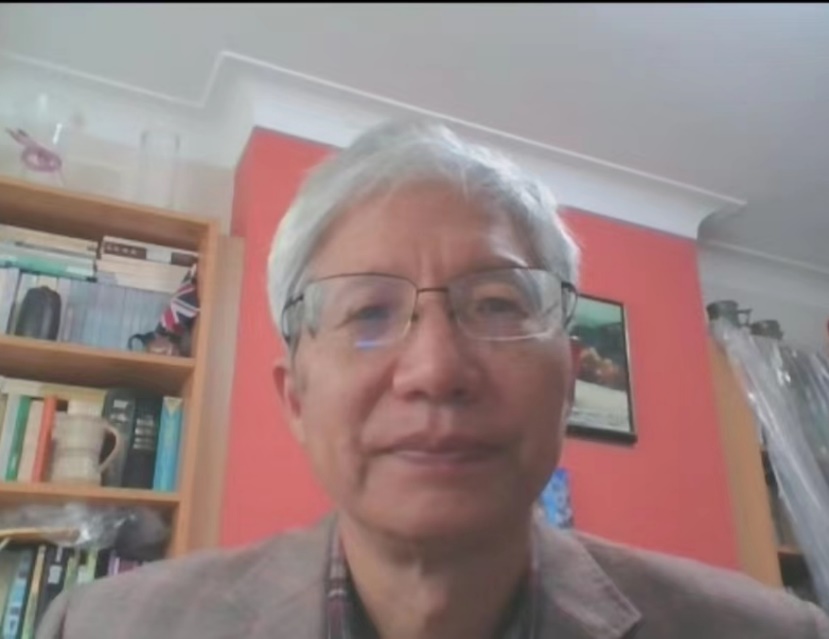
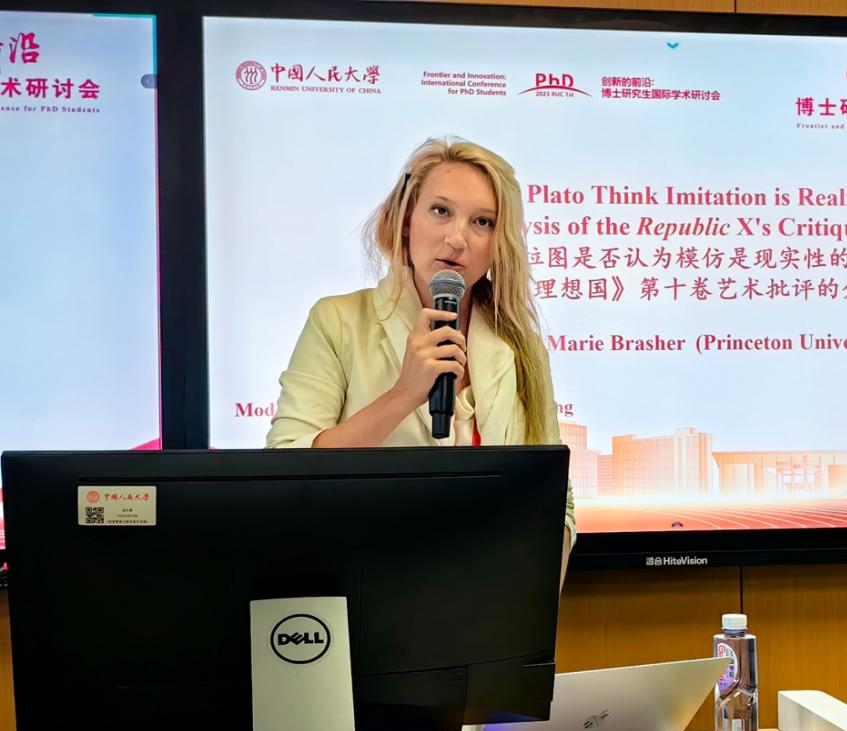
Pang Yawen from Renmin University of China gave a presentation on “Love in Mencius and Aristotle”. She elaborated on the concept of “benevolence” in the philosophy of Mencius and the concept of “love” in the ethics of Aristotle. Mencius argued that people should love all people unconditionally and actively, and that virtues based on love could shape the ideal political entity. Aristotle, on the other hand, believed that the bonds of community could only be interest-based love, rather than altruistic love.
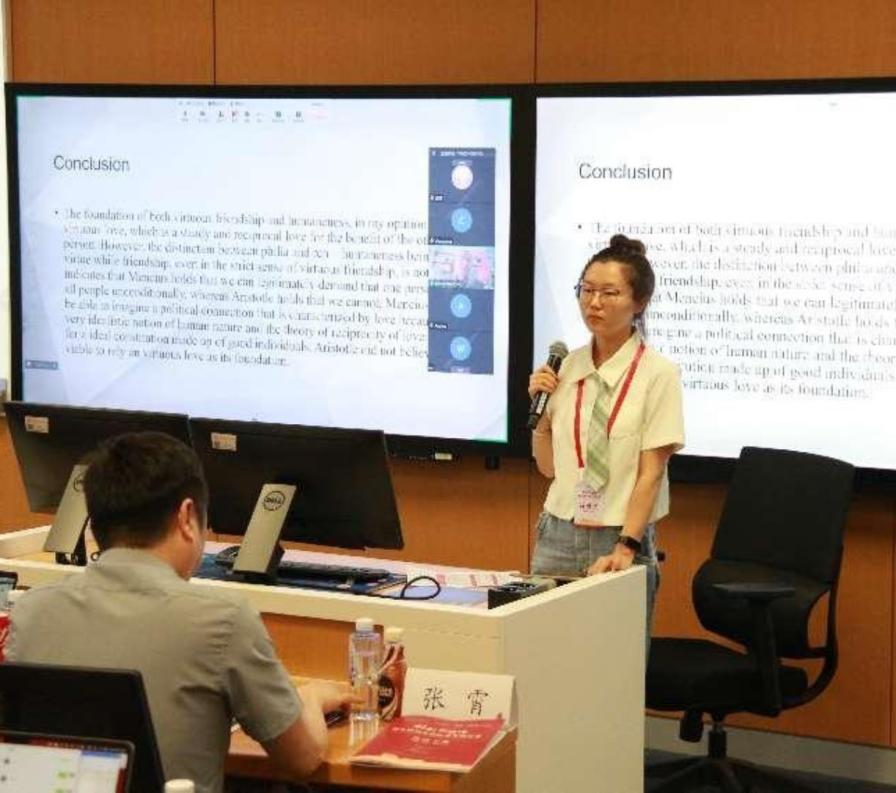
The second presentation was hosted and reviewed by Professor Cheng Wei of Peking University. Andrea Buongiorno from University of Oxford discussed about “The Scope of the Law of Non-Contradiction in Aristotle's Metaphysics Γ.4”. He noted that there is scholarly disagreement about the scope or extension of the specific version of the law of non-contradiction defended by Aristotle. According to one interpretation, Aristotle is not committed to the question of whether the same non-essential attribute satisfies the law of non-contradiction, while another interpretation holds that he supports a more comprehensive version of the law of non-contradiction. Buongiorno provided a detailed textual as well as theoretical exposition in support of the more comprehensive interpretation.
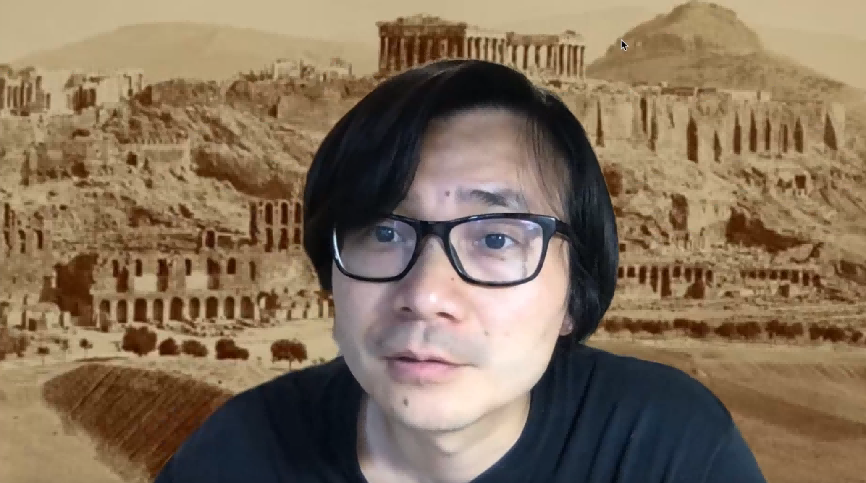

Dai Biyun of Tsinghua University presented on “Galen on the Rational Soul: A Metaphysical Interpretation”. She argued that Galen updated Plato's argument that the rational soul is located in the brain with logical and anatomical knowledge. Academics differ on whether Galen was agnostic or physicalist. Dai Biyun refuted the physicalist interpretation represented by von Stein, arguing that Galen held an agnostic view of the entity of the soul and had transformed the theory of mixture into an Aristotelian hylomorphism, adopting a hylomorphic perspective.
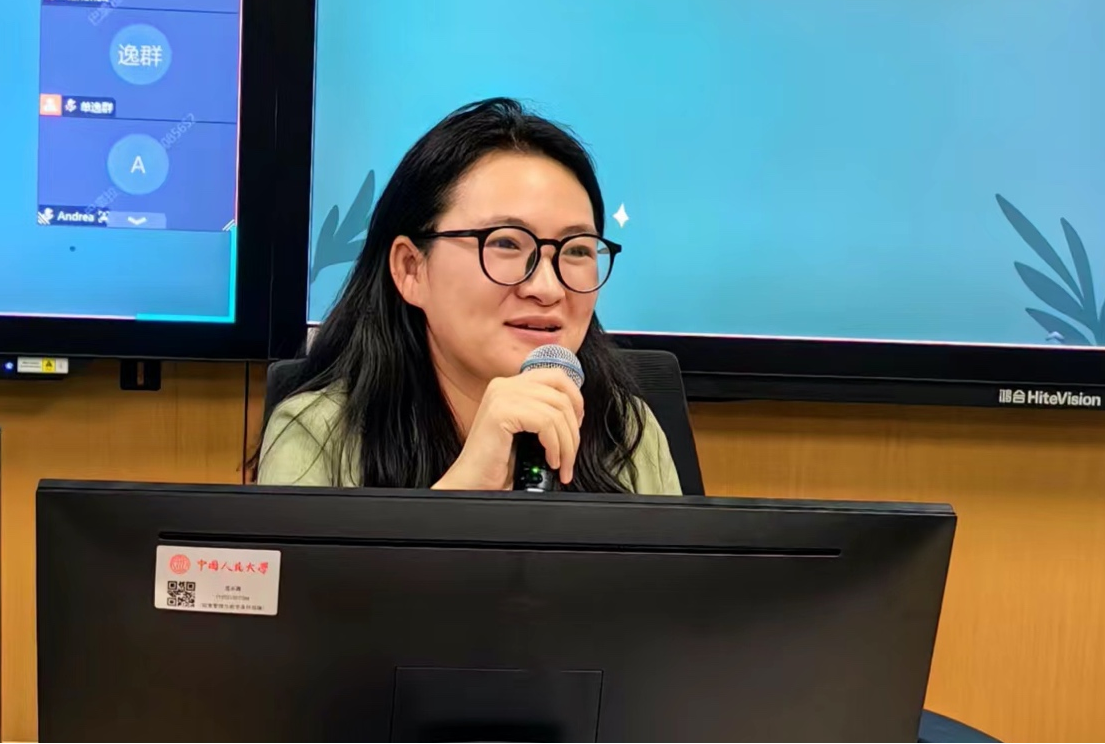
Associate Professor Li Jifen of the School of Philosophy, Renmin University of China, hosted and commented on the third presentation. Pawel Trzciakowski from the University of Munich elaborated on Augustine's theory of the value of the four classes of good on the topic of “Free Will and the Hierarchy of Goods in Augustine's On Free Will”. He detailed Augustine's account of the various goodnesses in On Free Will in order to demonstrate that Augustine was not influenced by the Stoic doctrine of “neutrality”, which is incompatible with Augustine's metaphysical theory of the relation between being and goodness.
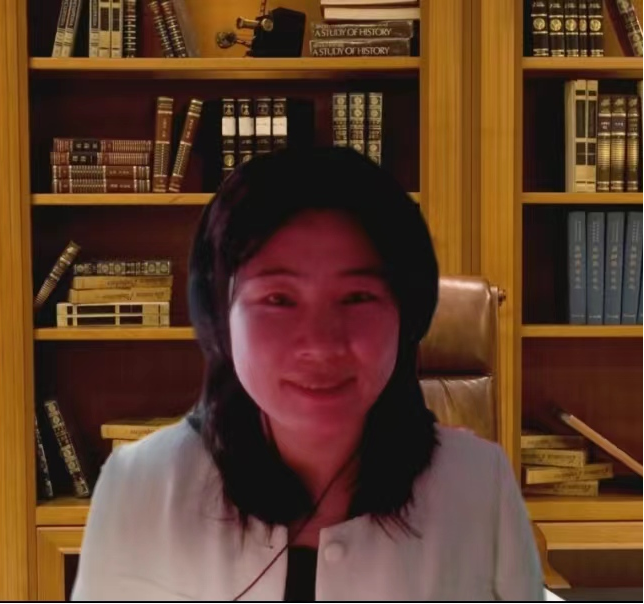
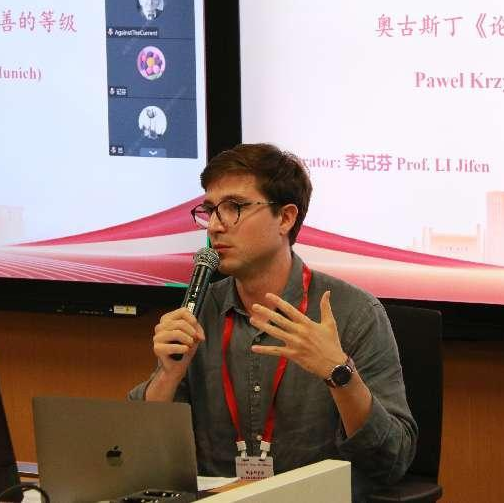
Cao Jiarui of Renmin University of China presented on the topic of “How is Xunzi's ‘desire driven by emotion’ possible as a moral motive?” She pointed out that in the face of the challenge that Xunzi's “desire” cannot be a moral motive, it is necessary to prove that Xunzi's “desire drivenby emotion” can be a moral motive based on Xunzi's concept of “desire” itself, on the basis of the theory of the unity of human nature, emotion, and desire, it is proven that Xunzi's "desires driven by emotion" are in fact a natural sentiment inclined towards virtue, capable of prompting the heart to generate intentions to act according to norms, thereby facilitating moral behavior.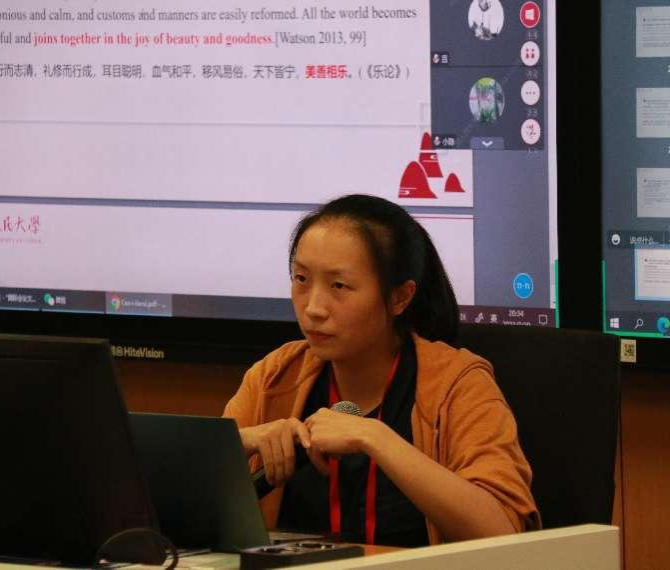
Professor Liu Wei of the School of Philosophy, Renmin University of China, moderated and commented on the fourth presentation. Tian Chuyu from Columbia University gave a keynote speech on “The Measure of All: Aristotle on Virtue and Rule”. Through the reinterpretation of the three texts of “Nicomachean Ethics” cited by Curzer, Tian Chuyu questioned Curzer's interpretation of “good men see truth” by saying that “truth exists independently of good men”. She argued in detail that in Aristotle's ethics, the good man is an indispensable element in defining “virtuous behavior,” and that the goodness of the good man precedes the rule, thus proposing a constructivist understanding of Aristotle's theory of virtue.
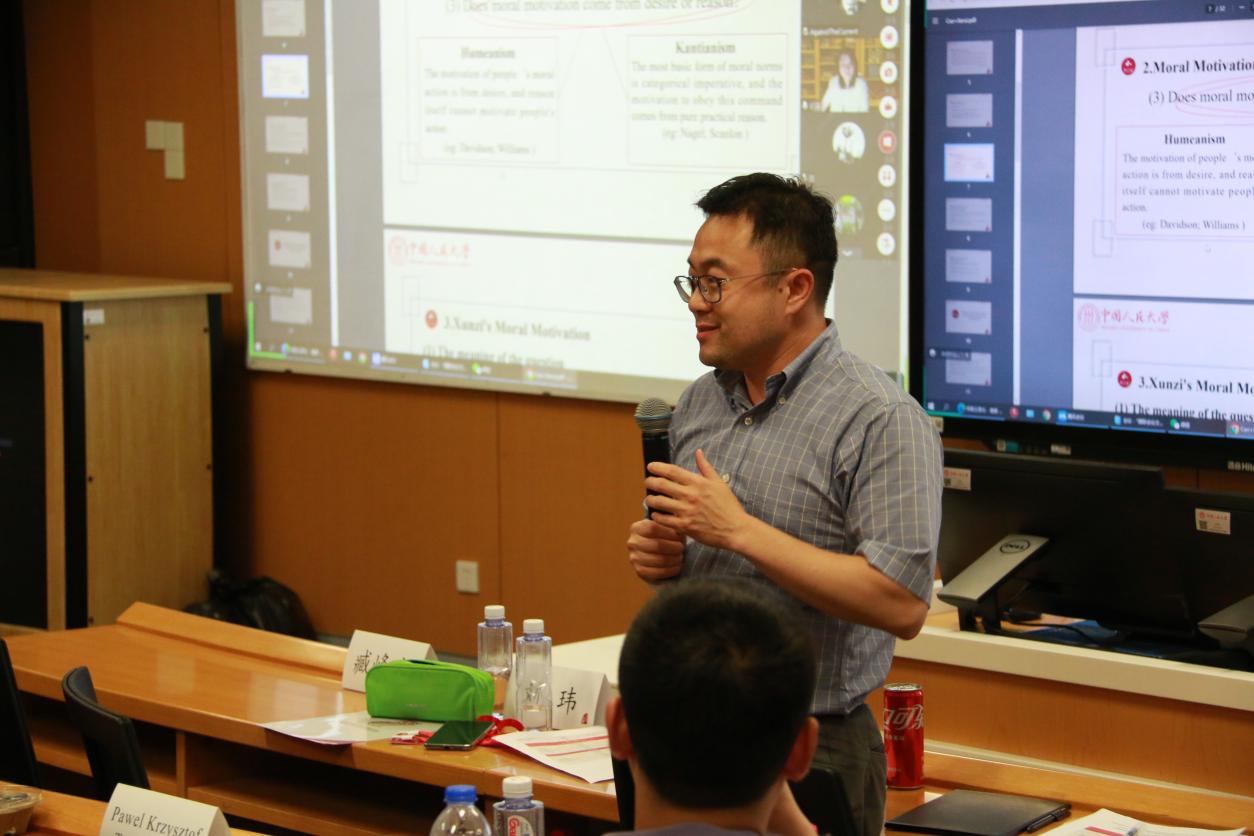
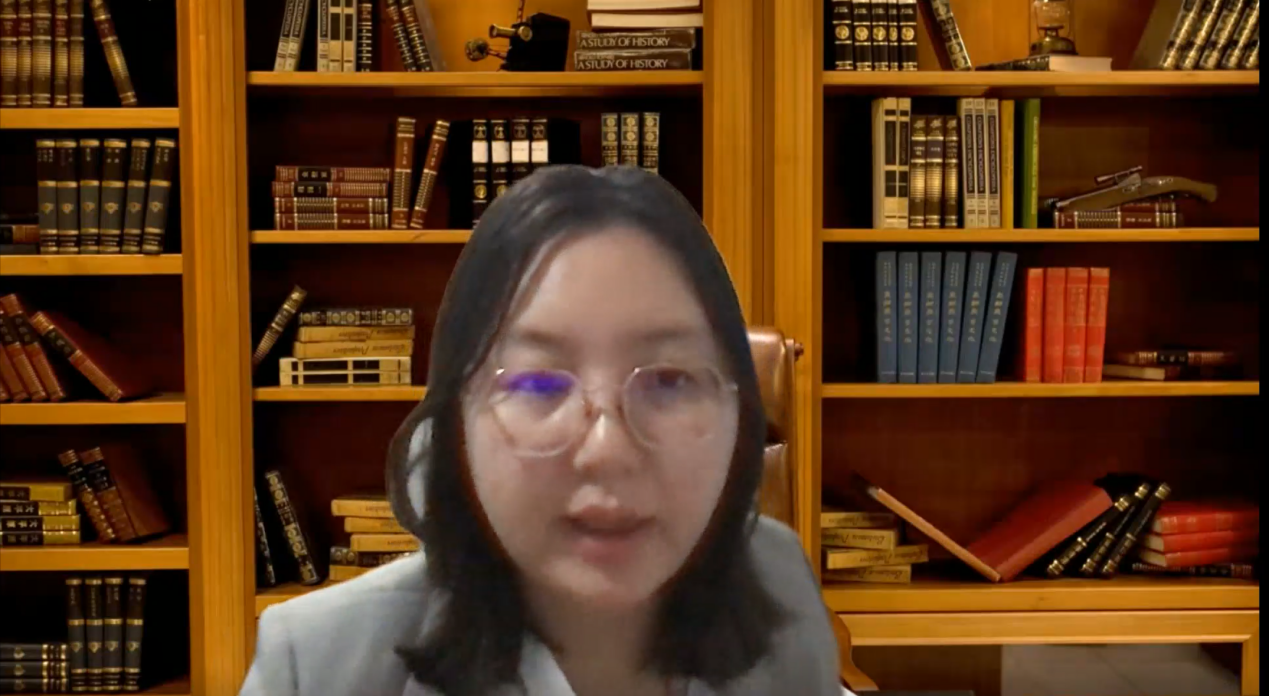
Li Wenqi of Peking University explored the question of “Aristotle on the Beginning of Contemplation”. He argued that planning always begins with desires, not with passions or whims. From this perspective, he elaborated on how planning constitutes the means of determining the fulfillment of the ends set forth in the desire, and refutes the view that the uncontrolled and the unrestrained have plans that begin with passions.
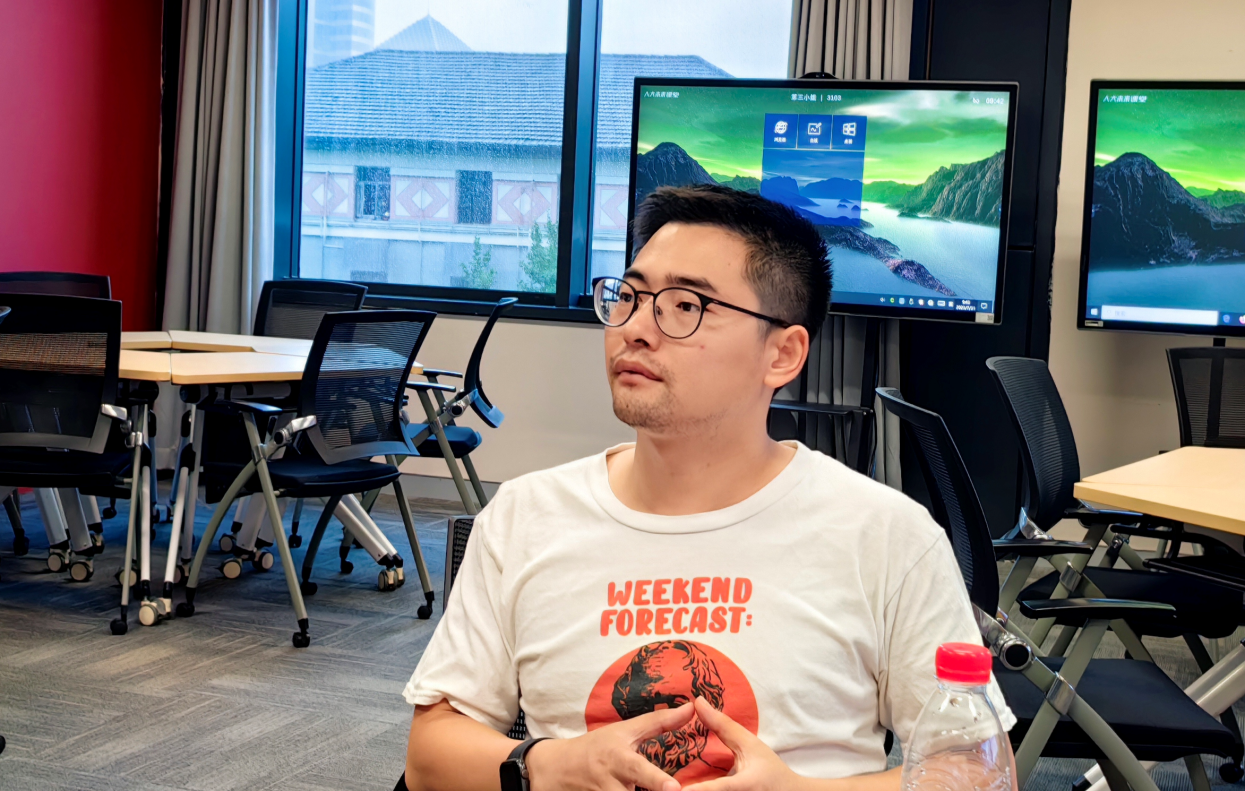
The last presentation was moderated and commented by Associate Professor Lan Yang from the School of Marxism, Renmin University of China. Lu Junyao from Renmin University of China elaborated on “Marx's Creative Transformation of Traditional Culture and Its Methodological Implications for ‘the Second Combination’”. She believed that Marx adhered to the problem-oriented approach in the process of critically inheriting traditional culture, and condensed theoretical ideas applicable to the times according to historical changes and social development, and that his scientific method of creatively transforming traditional culture provides methodological reference to the idea of “the second combination” in contemporary China. The only way to promote “the second combination” is to integrate and develop on the basis of a practical dialectical approach, uphold intergrity and make innovations, to continue the new form of human civilization in the specific historical context of Chinese modernization, to consolidate the cultural subjectivity, and to build a new socialist culture of modern significance.

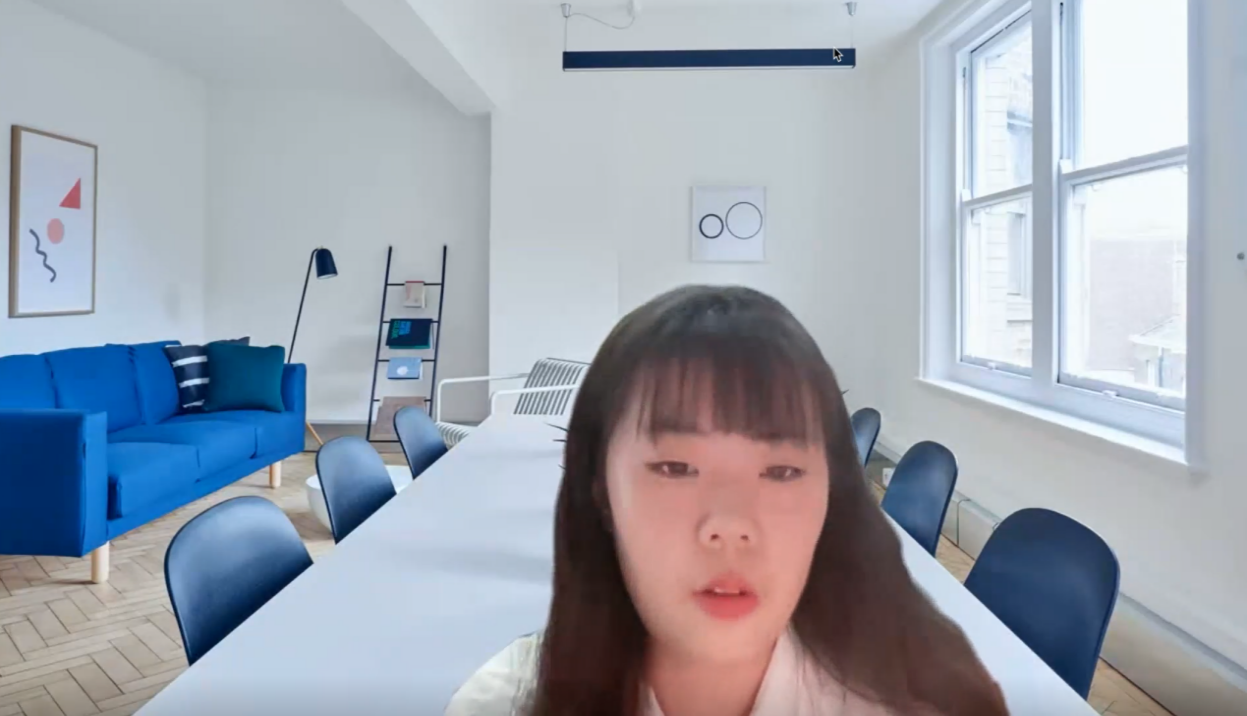
Moritz Kuhlmann, from Renmin University of China, presented on the topic of “Approaches and Methodologies in the Study of the Relationship between Chinese Marxism and Traditional Chinese Culture: A Western Perspective”. As a Western researcher of Marxism, he explored the question of adapting Marxism to the Chinese context from a Western perspective. He argued that based on the prerequisite that Marxism is sensitive to the times and culture and can be continuously adjusted with the changes of the times and culture, Adapting Marxism to the Chinese context successfully replaces the Western cultural concepts it contains with basic concepts related to traditional Chinese culture, and that this replacement has strong Chinese characteristics.
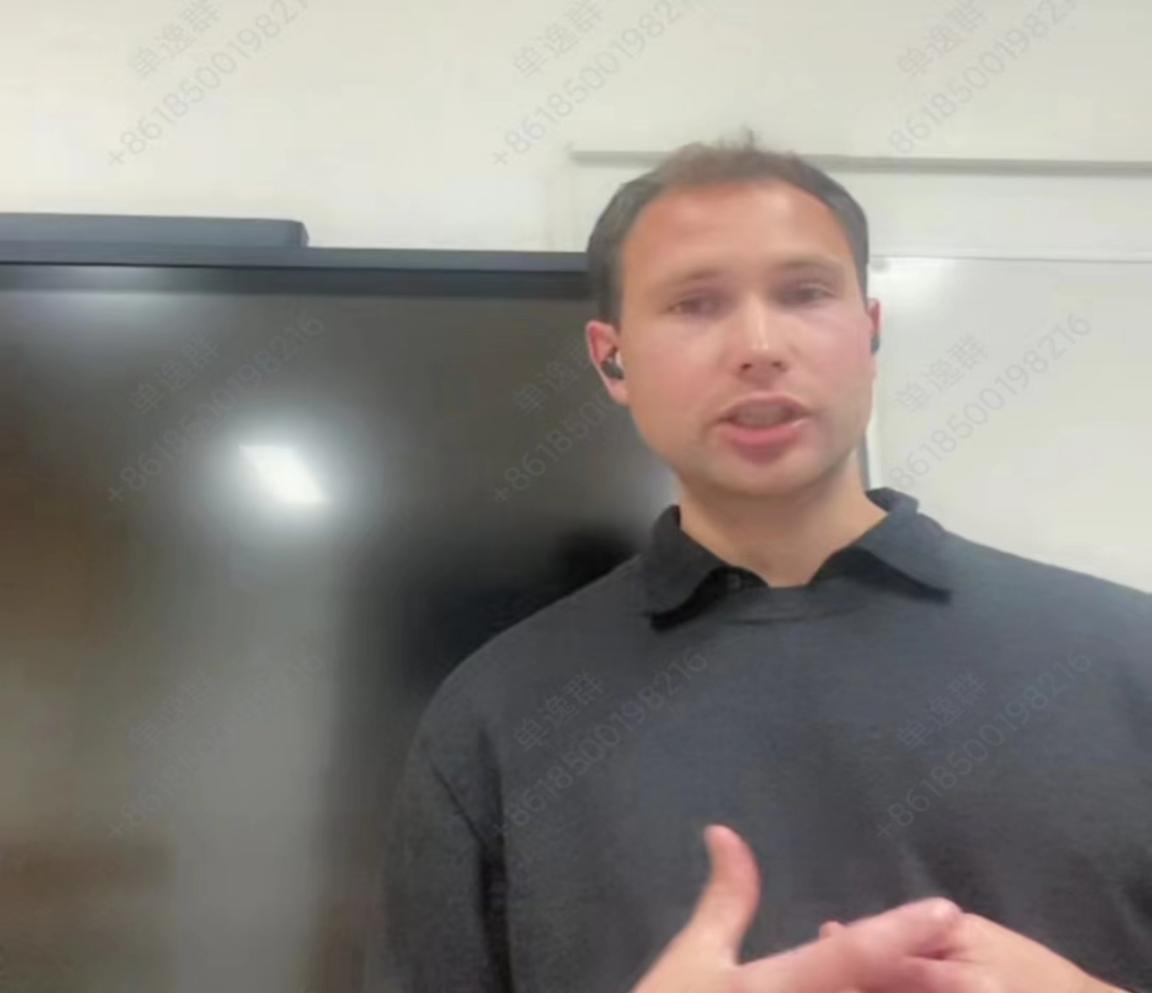
The Philosophy School sub-forum of Renmin University of China's inaugural "Frontiers of Innovation: International Academic Symposium for Doctoral Students" themed "Ancient Philosophy and the Mutual Recognition and Exchange of Civilizations" has successfully concluded. This symposium brought together the academic wisdom of young scholars from both home and abroad. The captivating presentations by the speakers and the enthusiastic inquiries from the audience sparked intellectual innovations. Amidst debates and discussions, participants jointly explored the essence of ancient philosophy and the mutual recognition and exchange of civilizations, fostering collaboration and exchange within the academic community while infusing new perspectives and impetus into the research and development of ancient philosophy.
